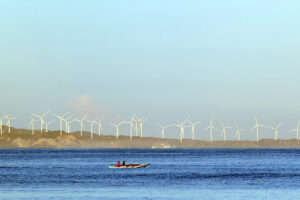THE PHILIPPINES should implement “smart” policies that address challenges in power, infrastructure and defense sectors in order to fuel double-digit economic growth, Denmark’s ambassador to the Philippines said on Tuesday.
In his keynote speech at the 45th National Conference of Employers on Tuesday, Ambassador Franz-Michael Skjold Mellbin said that he believes that the Philippine economy’s baseline growth should be about 6-7% “as long as the government does not do anything stupid.”
The government is targeting 6-7% gross domestic product (GDP) growth this year and 6.5-7.5% GDP expansion in 2025.
Mr. Mellbin said some of the past governments have done things that “were less than admirable for [the Philippine] economy and its people.”
“If the government actually does smart stuff, if you get good policies, I believe that the Philippines could go double-digit, once or twice, during the next decade,” he said.
The ambassador said the Philippines is in a good position to take advantage of the opportunities brought by growth in the Asian region.
“The scene is set for sustained economic growth in the Philippines, and let’s make sure that happens,” he added.
However, the Philippines currently faces some key challenges that may hinder sustained growth in the coming years, Mr. Mellbin said.
“As you know, there are real challenges with power in this country. You have brownouts; millions of Filipinos don’t even have access to power,” he said. “So, there’s no doubt that the Philippines needs more. It needs affordable and stable energy, as it will help the economy grow.”
The Danish envoy said that the Philippines should address power supply issues, if it wants to sustain its growth momentum.
The Philippines should also improve infrastructure, he noted.
“You need better infrastructure, and it’s urgent, and fortunately the government knows,” he said. “It is good that you have good people in leadership that are trying to make solid plans for expanding the infrastructure.”
The Marcos administration is currently implementing an infrastructure program called Build Better More, which is a continuation of the Duterte administration’s Build, Build, Build infrastructure program.
The government has currently identified 185 infrastructure flagship projects with an indicative total project cost of P9.55 trillion.
Mr. Mellbin said the Philippines also has to address defense issues amid “much more pertinent external threats.”
“Pressure from our Chinese friends is quite massive, and we do have very strong allies and friends, including Denmark, when it comes to this,” he added.
There are heightened tensions between the Philippines and China in the West Philippine Sea, especially after a clash that injured a Filipino soldier.
Mr. Mellbin said that he recognizes that these three issues — power, infrastructure and defense — have no real fast fixes, adding the Philippines could explore consensus policies. He said that in Denmark, there is broad-based political consensus on what the country will do in these three areas in the next decade.
He said that there is a need to convince the Philippine government to implement long-standing political consensus on these three areas.
“What you just need to make sure is that from this presidency to the next, they get these three areas right and make sure that they carry over,” he added. — Justine Irish D. Tabile
